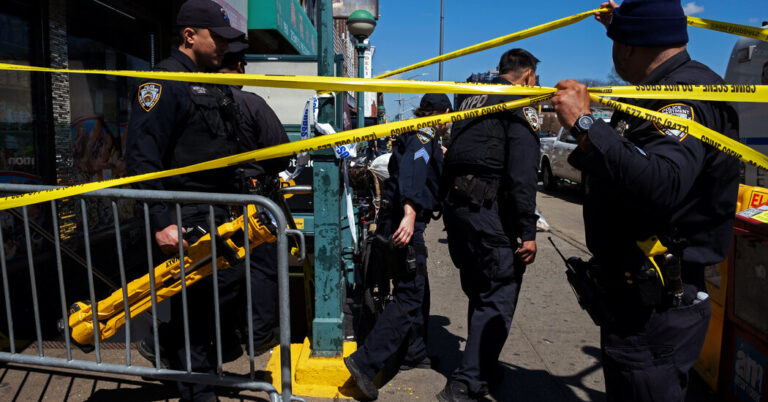Paulsboro, NJ victims warn East Palestine, Ohio train residents
Prepare for a long legal battle.
That’s what victims of a 2012 toxic train derailment in Paulsboro, New Jersey are warning residents of East Palestine — as the tiny Ohio town continues to grapple with a devastating spill that leaked the same harmful chemical as the disaster a decade earlier.
News of last month’s freight train derailment in East Palestine quickly triggered traumatic memories for those in Paulsboro where residents were exposed to a cloud of vinyl chloride after 180,000 pounds leaked from a ruptured Conrail-owned tanker car.
The victims, including some who are still struggling with health woes they say are linked to the chemical exposure, are now urging those in Ohio — where 1.1 million pounds of vinyl chloride leaked following a derailment — to seek out legal advice so they can’t be ripped off by rail company, Norfolk Southern, when it comes to possible compensation.
“My heart goes out to those people,” Cassandra Clark, 54, told The Post this week. “They have every right to be afraid of what’s going on.”
“Make sure you’ve got lawyers, because I’m telling you, I don’t think they [Norfolk Southern] really care,” she continued. “We had a class action lawsuit, but you don’t really get anything from it. I can’t even remember the amount, but it was book money for my daughter for the first semester. It was nothing.”
In the aftermath of the Paulsboro ordeal, multiple class action lawsuits were filed on behalf of first responders and the hundreds of local residents who lived or worked near the site of the Nov. 30, 2012 derailment.
But some residents claim the rail company paid them off with “chump change” compensation to prevent them from seeking more cash if they developed serious health ailments down the line, including cancers.

“People signed letters to get money, but they waived all their rights,” said Paulsboro mayor Gary Stevenson, who was the deputy fire chief in 2012 when the derailment occurred.
“My advice to the [Ohio] residents is understand what you’re singing. You might be signing your life and health away if you do that.”
Exposure to vinyl chloride – a carcinogenic – has already been linked to liver, brain and lung cancers, according to the National Cancer Institute.
The mayor, who lived less than 100 yards from where the train derailed, said he hadn’t heard of anyone being diagnosed with cancer and blaming it on the Paulsboro incident.

Still, he said he gets regular medical testing because of his exposure and the unknown long-term health effects which could take many years to emerge.
“I went to a Philadelphia doctor for years after that, and he said, ‘Gary, you won’t see illness right away. It might take 20 years.’ It’s the same thing as people who work with asbestos and get mesothelioma years later,” Stevenson said.
“Up this point I’ve gotten blood tests regularly for my liver count. My numbers are good. But he said that would happen.”
In East Palestine, residents have raised fears about the safety of the air and drinking water after officials carried out a controlled burn of vinyl chloride and other toxic materials in the wake of the Feb. 3 derailment.
The burn, which officials said was to avoid an explosion, sent plumes of smoke into the air and contaminated at least 4,500 cubic yards of soil and 1.5 million gallons of water, Northfolk Southern said on Monday.
Stevenson said he knows the feeling of fear all too well.

“And trust me, the stigma will stay around. People say, ‘It’s still in the air, it’s still in the water, it’s still in the ground.’ Believe me, that stigma will stick around for quite a few years, I know that for a fact,” he said.
Mom-of-two Jacqui Benjamin is convinced her sons — Julian, now 15, and Dorian, now 10 — suffer from ongoing respiratory issues after breathing in the toxic fumes the day of the derailment.
“When the train derailed, this mist of chemicals engulfed all of Paulsboro and everybody breathed that in,” the 39-year-old recalled.
“When it happened, they both were vomiting like crazy. The next week it was the wheezing. We went outside, which we shouldn’t have done, and everyone but I developed asthma.”
She said her eldest still needs an inhaler if he exercises or overexerts himself.
The mom recalled getting compensation from the rail company, but described it as nothing more than “chump change” and a “slap in the face.”
“There’s a connection and it doesn’t want to be acknowledged that these kids have respiratory issues because of the chemicals. It’s just horrible,” she said.
“It’s sad that this is continuing to happen. I feel bad for them [in Ohio] because I know the trauma that the chemicals bring to a family. We experienced that and it’s the kids I’m worried about.”
Kristen Pickel said her late husband, Ronald Morris, who died in a motorcycle crash two years ago, suffered a deluge of ailments after driving through the chemical fog the day of the derailment.
“He was driving through Paulsboro to get to a job and he couldn’t see. It just overcame the vehicle. He was in the fog until he could get out of it,” Pickel, 50, said.
“It affected everything — his body, his state of mind. He wasn’t the same after. He was very sick, kept going back and forth to the emergency room. He went through bouts of depression. Every morning he would throw up. He started drinking.”

She said the symptoms started immediately – and then the anxiety of “what’s going to happen to me?” set in.
“Doctors denied there was anything seriously wrong with him,” Pickel said.
Of the East Palestine ordeal, Pickel warned residents there that it would be “life changing.”
“These people are seriously going to have a long road because it’s not good. They just burned that stuff and let everyone breathe it in,” she said. “And if any of them try to sue, they’re going to get nothing. That’s what happened to us — we sued and we lost, because Conrail has powerful lawyers.”
Cassandra Clark’s son, who was only five or six at the time, had vomiting and diarrhea in the aftermath of the derailment.
“I remember it like it was yesterday. My son had been outside playing before school, and that particular day he got really sick,” she said. “It was really bad. He had never done that ever before or again. We hadn’t even heard about the train derailment yet, so we didn’t know what was going on.
“My daughter had walked to school, and had walked through the fumes. When she came home she just slept all day long, just slept, which was very out of character for her.”
Her son later developed hypothyroidism, which caused substantial weight gain and required medication — and Clarke suspects the toxic chemicals are the cause because thyroid trouble doesn’t run in her family.
“It was a scary time. Of course you’re thinking the worst. Your son develops a thyroid problem and you’re like, where did this come from?” she said.
“You question whether this is something that’s going to reappear later in life. I think about my daughter — is something going to go wrong when it’s time to have children? You think about all that.”

The mayor’s parents, Irma and Walt Stevenson, live 50 yards from where the train derailed.
Irma, 83, said trains would come by their house regularly and they never thought twice about what they were actually carrying prior to the incident.
“I was a nurse and I knew about chemicals, but I didn’t understand what the vinyl chloride was. I didn’t know what it was doing to my town,” Irma said.
“Being a nurse, I asked about possible health outcomes — brain cancer, liver cancer. How much did we breathe in that day? We were right here. My husband was in the fog, and it looked like the fog was coming up from the ground. Was this going to shorten our lives?”
She called on the federal government to crack down on regulating the rail industry in the wake of East Palestine, adding that the latest incident “breaks my heart.”
“The rail is supposed to have regulations, but are they followed? Are they fortifying the tank cars? Are they really doing inspections on the tracks? We had all these politicians coming promising to pass laws for this, for that. None of it happened,” Irma said.
Check out our Latest News and Follow us at Facebook
Original Source







